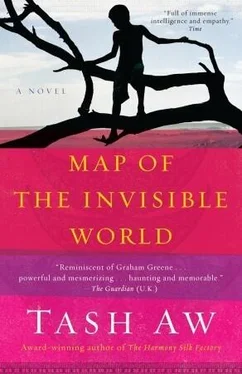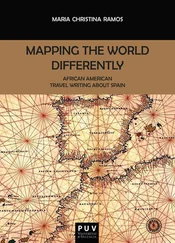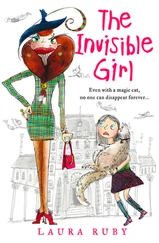Tash Aw - Map of the Invisible World
Здесь есть возможность читать онлайн «Tash Aw - Map of the Invisible World» — ознакомительный отрывок электронной книги совершенно бесплатно, а после прочтения отрывка купить полную версию. В некоторых случаях можно слушать аудио, скачать через торрент в формате fb2 и присутствует краткое содержание. Год выпуска: 2010, Издательство: Spiegel & Grau, Жанр: Современная проза, на английском языке. Описание произведения, (предисловие) а так же отзывы посетителей доступны на портале библиотеки ЛибКат.
- Название:Map of the Invisible World
- Автор:
- Издательство:Spiegel & Grau
- Жанр:
- Год:2010
- ISBN:нет данных
- Рейтинг книги:4 / 5. Голосов: 1
-
Избранное:Добавить в избранное
- Отзывы:
-
Ваша оценка:
- 80
- 1
- 2
- 3
- 4
- 5
Map of the Invisible World: краткое содержание, описание и аннотация
Предлагаем к чтению аннотацию, описание, краткое содержание или предисловие (зависит от того, что написал сам автор книги «Map of the Invisible World»). Если вы не нашли необходимую информацию о книге — напишите в комментариях, мы постараемся отыскать её.
comes an enthralling novel that evokes an exotic yet turbulent place and time—1960s Indonesia during President Sukarno’s drive to purge the country of its colonial past. A page-turning story,
follows the journeys of two brothers and an American woman who are indelibly marked by the past — and swept up in the tides of history.
Map of the Invisible World — читать онлайн ознакомительный отрывок
Ниже представлен текст книги, разбитый по страницам. Система сохранения места последней прочитанной страницы, позволяет с удобством читать онлайн бесплатно книгу «Map of the Invisible World», без необходимости каждый раз заново искать на чём Вы остановились. Поставьте закладку, и сможете в любой момент перейти на страницу, на которой закончили чтение.
Интервал:
Закладка:
2
T his is Adam. He came to live in this house when he was five years old. Now he is sixteen and he has no memory of his life before he came here.
Sometimes he wakes with a start — not from any nightmare, but from an uncomfortable sensation that he is staring into a huge empty space, something resembling a yawning bottomless well, and that he is engulfed by its vastness. It is at this point that he wakes up, for he cannot bear this great emptiness. Scenes of his childhood do not come back to him, not even when he closes his eyes and tries to re-create them in his mind’s eye. In those moments between awakeness and sleep, when he has laid his head on his pillow, he tries to let his mind drift, hoping that on this night his past life will finally burst through the cracks and fill his dreams like warm, swirling floodwater, thick with memories. It never happens, though, and his nights are clear and completely dreamless.
Occasionally — very occasionally — he has glimpses of a single image, something that flickers dimly for a few seconds and then fades away again: black moss on a bare concrete wall, splinters of wood on the legs of a desk, the ceiling of a long, dark room, a piece of canvas, a tabletop riddled with the pinpricks of wormholes that seem to form the very surface of the table so that when he runs his fingers over them he feels only holes, nothing solid. There are some noises too. Rain clattering on a zinc roof like nails in a giant tin can. And a curious sort of murmuring, a monotonous hum of low voices half-whispering, half-talking. All he can discern are the sibilant s ’s or sometimes sh ’s, like a chorus of hushing. These sounds take place in a big room, something like a dormitory, which, needless to say, Adam cannot visualize. And once in a while, when he is doing something perfectly ordinary— cycling into town or feeding the chickens or swimming over the reefs looking at the remains of the shipwrecks — a single word will light up brilliantly in his head, just for an instant, like a flashbulb. Shell. Easter. Snow. He will know, instantly, that this word has come from his past life in the orphanage.
But these fragments of words and images never mesh to form anything bigger or more intricate; they remain bits of broken mosaic that mean very little to Adam now. There are never any people or faces or bodies, or even animals in his memories, if you can call them memories.
There have been times in the past when this lack of recollection has been very frustrating for Adam. A few years ago, when his pubescent hormones made him angry and confused and a bit crazy, he wanted to find out about his birth family. He accused Karl of withholding information, of taking away his former life, of shielding him from the truth. Whenever visitors asked him what his name was he replied, “My name is Adam and I have no surname.” At the time he enjoyed Karl’s silence and inability to respond; the smile on Karl’s face would set and he would not speak, and the guests would pretend to laugh, to find this funny. But Adam realizes that he was wrong to have done that, and it is he who is embarrassed whenever he remembers this awkward period in his life. There were no secrets to be found out, he knows that now. Life had to be lived in the present, Adam had learned.
And this is what he tells himself, sitting on the steps of the porch of this dark and newly lonely house. When he first came to this place he had to learn how to live in an alien environment. Now he must relearn how to do so. Looking into the house, the inside of which seems strange and distant once more, Adam tries to remember his first days here, how Past detached itself from Present and very quickly ceased to be relevant. Ten, eleven years — it was not so long ago. If he could remember how it happened, then maybe he could replicate it.
The whole of Adam’s life began to take shape the day Karl brought him here from the orphanage. Images sharpened, smells became pungent, emotions articulated themselves, and the murky darkness of his past began to recede, slowly, into the distance.
Like a pet in a new home, Adam did not venture far from his room for the first few days (much later, Karl would indeed liken Adam’s early appearance to that of a hatchling, or a newborn kitten, which Adam did not like, but only because he knew it was true). There was too much to take in, too much that was alien and unconnected with what he had known before. The continuous crackling of the wireless; the distant voices speaking in languages he did not understand. The colorful spines of enormous books. The bizarre gadgets scattered around the house (things that he would soon learn were entirely prosaic — a typewriter or a pair of binoculars — but which at that time seemed surreal, even threatening). And above all, this foreign man who walked with a slight limp and seemed as wary of Adam as Adam was of him. He did not dare come too close to Adam, and although he smiled in a gentle manner, Adam sensed an awkwardness in his regard, almost as if he was scared of Adam. Three times a day he left Adam’s food for him on the table next to the bed. “Thank you, sir,” Adam would say as the man retreated, leaving him alone to contemplate his new surroundings.
One day this man (who was called Karl, Adam learned) hesitated as he placed Adam’s dinner on the little square table. The smell of peppery vegetable broth filled the room and made Adam feel hungry. Karl said, “Please don’t call me sir. Call me father.” And he left the room, even more swiftly than usual, as if terrified of what he had just said.
Ridiculous, thought Adam. He could not think of this man as his father; he would not do so. He looked so strange, unlike anyone Adam had ever seen before — a character out of some far-fetched myth: fair hair that was almost the same color as his skin, eyes of an indistinct hue (sometimes green, sometimes gray, always translucent, like a mineral brought to life), a nose that seemed unreasonably and bizarrely triangular, and cheeks that had a pink blush to them. These were features born of a cold climate, Adam knew, even then. He dismissed the thought and began to eat. No, Karl was not his father.
For long stretches during those early days, Adam would sit cross-legged on his bed, his back resting against the wall, and listen to the unfamiliar noises of this new house: to Karl’s footsteps padding gently on the floorboards; to the sound of music coming from the living room (he could not remember ever having listened to music before — certainly not music like this, so dense and foreign his ears could not process it). He lay in bed and listened to the insistent mewing of the cat, which sat watching him from the top of the cupboard; and he listened, above all, to the distant, hypnotic washing of the waves on the rocks that lulled him to sleep.
He understood why he was here. He understood too that he was one of the lucky ones. He had been taken away to start a better life here. But at this point in time he did not feel lucky, nor did he really know what a better life would entail.
As he drifted off to sleep he wondered if he missed the orphanage, and wondered if it was this that made him sad. But he experienced no nostalgia or longing; instead he found that his recollections of the orphanage were already thick and hazy. Lying in bed listening to the constant wash of the waves he began to realize that the sadness he felt would not last forever; it was a different kind of sadness from anything he might have experienced previously. Somehow, he knew that in this new house, with this frightened, frightening man, he could overcome these sensations of sorrow. He had much to fear in this new life, but fear was no longer something huge and undefined and terrifying. It was something he could master. He knew that now. And so he would fall asleep. He slept a lot during those first days.
Читать дальшеИнтервал:
Закладка:
Похожие книги на «Map of the Invisible World»
Представляем Вашему вниманию похожие книги на «Map of the Invisible World» списком для выбора. Мы отобрали схожую по названию и смыслу литературу в надежде предоставить читателям больше вариантов отыскать новые, интересные, ещё непрочитанные произведения.
Обсуждение, отзывы о книге «Map of the Invisible World» и просто собственные мнения читателей. Оставьте ваши комментарии, напишите, что Вы думаете о произведении, его смысле или главных героях. Укажите что конкретно понравилось, а что нет, и почему Вы так считаете.












